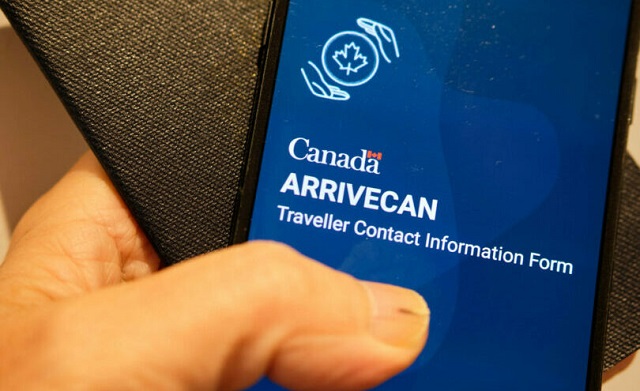Alberta
Updated: Cpl Courtney McKinley is first female soldier from 41 Signal Regiment to deploy from Red Deer in four decades

Correction: Cpl McKinley is the first female soldier from “41 Signal Regiment (2 Sqn)” in Red Deer to deploy overseas. There have been as many as 5 female soldiers from Red Deer that have deployed since 1979/80. In the original version of this article I incorrectly stated that Cpl McKinley was the first female to deploy in 4 decades. She is the first female “signaller” to deploy in that time. My apology.
What follows is the original article, updated for accuracy.
As we go about our busy lives in Red Deer, rarely do we think of the soldiers that work, live, and train in our city. The reality is that we have a growing group of soldiers here, members of 41 Signal Regiment (2 sqn) and 78th Field Battery, a unit of the 20th Field Artillery Regiment.
Given our lack of knowledge at what goes on inside Cormack Armoury and the military in general, it’s fair to say many of us wouldn’t realize that it’s very rare for a female soldier from Red Deer to deploy on an international operation. Forty years ago this past month Cheryl Bolander, Connie Kaastrup, Karen Russel, Bev Scott and Joan Verbonic returned from deployment to Germany. In the ensuing years, there have been as many as 5 deployments of female soldiers from the city.
Those numbers were bolstered recently when Cpl Courtney McKinley Of 41 Signal Regiment took up the call and volunteered for deployment to Latvia in July 2019 for six months. McKinley returned recently to resume her studies in political science at the U of A.
Operation Reassurance in Latvia is part of NATO’s assurance and deterrence measures ained to reinforce NATO’s collective defence and shows the strength of solidarity of our Allied forces.
The CAF support to NATO helps make Central and Eastern Europe more secure and stable. It also shows that the CAF is a professional force that is ready for any task.
I got together recently with Cpl McKinley to talk about her unique experience.
The interview appears below, lightly edited for brevity.
How long have you been a member of the Armed Forces and what led you down that path?
McKinley: I’ve been a member for about 3 years. I grew up in Wainwright, and as you know, that’s a military town. It really influenced me and I’ve always thought it was a really cool thing for people to do, and I appreciated it myself, and it’s proven to lead me into some very cool experiences.
What was your role there and why did you want to do deploy?
McKinley: Well, Canada has been deploying an increasing amount of troops to Latvia the past several years as part of NATO’s Enhanced Forward Prescence in the Balkins with Canada being the Framework Nation for Latvia so many of my colleagues from the Regiment and from the Brigade in general had previously deployed and I heard alot of positive feedback. It’s not a combat tour, but it’s more of an exercise-based mission and it really allows members to hone in on the roles of their trade and really become professional soldiers. As a Reservist, it allowed me to take my theoretical knowledge and apply it to real world situations. What led me to deploy is I wanted to put my training to a practical use to become a better soldier in the future.

What was your role?
McKinley: Being a Signaller in the Canadian Army means that you are responsible for establishing all types of communications systems. Further you need to be able to track what is going on in the battle and relay that information from the elements in the field back up to the Commanders. You are responsible for everything regarding communications in a military situation.
What did you learn from soldiers from other countries?
McKinley: We worked with militaries from approximately 9 different countries. When you form an international NATO battle group, it’s an amazing dynamic because all of these different militaries are expert in some things, but not necessarily everything, Canada included. We were all able to learn from each other and bring that knowledge back to our countries and now work with our peers to advance our own skills. Montenegro for instance, is a very small country and their troops are getting some pretty extensive training on how NATO operates as a whole, and Montenegro, being the newest member of the alliance, is gaining significant knowledge and experience. In my case, I don’t think I’m exceptional, but I did have the flexibility in my life, and was readily available, and I really wanted to do it.
 What did this experience do for you personally?
What did this experience do for you personally?
McKinley: I guess I gained the knowledge of how other countries perceive Canada and our fighting force. And the ability to make friends with people who do not speak a common language using google translater. And learning that everyone has the same problems and challenges. One example would be, when you supply a mass amount of equipment to a group like this, there are problems – with your leadership, officers, and just personal things. One thing that really stood out for me was at Christmas. We were all away from home, it was the end of the mission, we were all tired of being away, but being able to spend time with our peers and newly-found friends was pretty awesome.
You’re studying Political Science at the U of A. Do you intend to continue with your military career and does your education align with this?
McKinley: I have no plan to leave my military life. Me studying politics plays more into the nature of my curiousity in the world around me and my interest in the military, and why I wanted to deploy in the first place.
What would you say to an employer about why a reservist would be a great asset to their company or organization?
McKinley: I would say that throughout my time in the reserves, what I have learned is alot of practical skills. And that goes from how to work with people from different nationalities, down to vehicle mechanics, and how those all play into a working environment. In the military you are taking policy put in place by NATO, really taking political theory and applying it right down to maintaining the equipment needed to make sure that mission succeeds. As a troop on the ground you’re part of the gears that are actually working to a successful mission and feel like I’ve seen all levels of that in my brief military career. The values you see in the military would be working together on a team and working towards a common goal with that team. It’s not about the individual. That’s probably the biggest lesson I’ve learned from my military career that can transcend into my civilian work. And trusting in leadership to take you where you need to be in order to be successful.
The military has made diversity a priority over the past few years. What would you say to someone, a female particularly, who is considering a career in the forces?
McKinley: It’s important for them to know that all members of the army are treated equally and are all held to the same standard. I can only speak for myself, and in my experience, yes it is a male-dominated field but I’ve never felt at any point that I was less than because I was a woman, and I guess I’d encourage them to join if they’re students or looking for practical skills development. You will have the same expectations if you are a man or a woman, and I’ve never experienced any objectification in my threee years. I’d encourage women to experience for themselves and listen to the experiences of women who have been in the forces. I think women are starting to realize that the military is very much a field for women as well.

Cpl Courtney McKinley, 41 Signal Regiment, Canadian Army Reserve
Background:
In June 2017, the CAF deployed about 540 Canadian Army members to Latvia. They are leading a NATO battlegroup comprising military members from several nations, including:
- Albania
- Canada
- Czech Republic
- Italy
- Montenegro
- Poland
- Slovakia
- Slovenia
- Spain
This battlegroup works as part of the Latvian Land Forces Infantry Brigade. It is based at Camp Adazi, Latvia.
Mission timeline
- April 29, 2014 – the CAF sent its first CF-188 Hornet Air Task Force to Europe. Since then, the CAF had periodically sent air task forces to Central and Eastern Europe.
- May 3, 2014 – the CAF sent a Land Task Force to Central and Eastern Europe, based in Poland.
- May 13, 2014 – the CAF sent a Maritime Task Force of one frigate to Central and Eastern Europe.
- June 19, 2017 – Canadian-led NATO enhanced Forward Presence battlegroup Latvia was stood up during a ceremony at Camp Adazi, Latvia.
- August 17, 2017 – The Land Task Force in Poland completed its final deployment.
- July 10, 2018 – The Prime Minister of Canada announced the renewal of Canada’s contribution to NATO’s enhanced Forward Presence until March 2023. The CAF will also increase the number of members deployed to Latvia from 455 to 540.
Past Deployments
CAF members have continuously supported NATO assurance and deterrence measures since 2014.
- To date, seven different ships have contributed to this operation; three of them have deployed twice.
- From May 2014 to August 2017, over 1000 soldiers deployed in eight rotations to Europe. Based at Drawsko Pomosrkie Training Area, Poland, they regularly took part in exercises with allies and partners.
- The CAF has sent an air task force to three different countries: Romania (four times), Iceland, and Lithuania.
If you’ve enjoyed this article, please share it. Here’s a link to a documentary from 2017 that highlights Alberta soldiers who have deployed overseas.

Lloyd Lewis is Honorary Lt. Colonel of 41 Signal Regiment and serves on the Board of the AB Chapter of the CFLC. He is President of Todayville, a digital media company based in Alberta.
Alberta
Alberta awash in corporate welfare
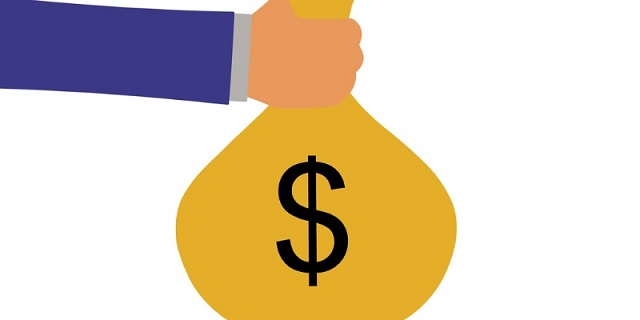
From the Fraser Institute
By Matthew Lau
To understand Ottawa’s negative impact on Alberta’s economy and living standards, juxtapose two recent pieces of data.
First, in July the Trudeau government made three separate “economic development” spending announcements in Alberta, totalling more than $80 million and affecting 37 different projects related to the “green economy,” clean technology and agriculture. And second, as noted in a new essay by Fraser Institute senior fellow Kenneth Green, inflation-adjusted business investment (excluding residential structures) in Canada’s extraction sector (mining, quarrying, oil and gas) fell 51.2 per cent from 2014 to 2022.
The productivity gains that raise living standards and improve economic conditions rely on business investment. But business investment in Canada has declined over the past decade and total economic growth per person (inflation-adjusted) from Q3-2015 through to Q1-2024 has been less than 1 per cent versus robust growth of nearly 16 per cent in the United States over the same period.
For Canada’s extraction sector, as Green documents, federal policies—new fuel regulations, extended review processes on major infrastructure projects, an effective ban on oil shipments on British Columbia’s northern coast, a hard greenhouse gas emissions cap targeting oil and gas, and other regulatory initiatives—are largely to blame for the massive decline in investment.
Meanwhile, as Ottawa impedes private investment, its latest bundle of economic development announcements underscores its strategy to have government take the lead in allocating economic resources, whether for infrastructure and public institutions or for corporate welfare to private companies.
Consider these federally-subsidized projects.
A gas cloud imaging company received $4.1 million from taxpayers to expand marketing, operations and product development. The Battery Metals Association of Canada received $850,000 to “support growth of the battery metals sector in Western Canada by enhancing collaboration and education stakeholders.” A food manufacturer in Lethbridge received $5.2 million to increase production of plant-based protein products. Ermineskin Cree Nation received nearly $400,000 for a feasibility study for a new solar farm. The Town of Coronation received almost $900,000 to renovate and retrofit two buildings into a business incubator. The Petroleum Technology Alliance Canada received $400,000 for marketing and other support to help boost clean technology product exports. And so on.
When the Trudeau government announced all this corporate welfare and spending, it naturally claimed it create economic growth and good jobs. But corporate welfare doesn’t create growth and good jobs, it only directs resources (including labour) to subsidized sectors and businesses and away from sectors and businesses that must be more heavily taxed to support the subsidies. The effect of government initiatives that reduce private investment and replace it with government spending is a net economic loss.
As 20th-century business and economics journalist Henry Hazlitt put it, the case for government directing investment (instead of the private sector) relies on politicians and bureaucrats—who did not earn the money and to whom the money does not belong—investing that money wisely and with almost perfect foresight. Of course, that’s preposterous.
Alas, this replacement of private-sector investment with public spending is happening not only in Alberta but across Canada today due to the Trudeau government’s fiscal policies. Lower productivity and lower living standards, the data show, are the unhappy results.
Author:
Alberta
‘Fireworks’ As Defence Opens Case In Coutts Two Trial
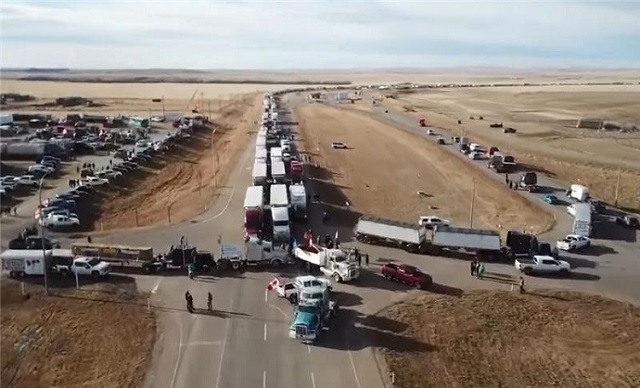
From the Frontier Centre for Public Policy
By Ray McGinnis
Anthony Olienick and Chris Carbert are on trial for conspiracy to commit murder and firearms charges in relation to the Coutts Blockade into mid-February 2022. In opening her case before a Lethbridge, AB, jury on July 11, Olienick’s lawyer, Marilyn Burns stated “This is a political, criminal trial that is un Canadian.” She told the jury, “You will be shocked, and at the very least, disappointed with how Canada’s own RCMP conducted themselves during and after the Coutts protest,” as she summarized officers’ testimony during presentation of the Crown’s case. Burns also contended that “the conduct of Alberta’s provincial government and Canada’s federal government are entwined with the RCMP.” The arrests of the Coutts Four on the night of February 13 and noon hour of February 14, were key events in a decision by the Clerk of the Privy Council, Janice Charette, and the National Security Advisor to the Prime Minister, Jody Thomas, to advise Prime Minister Justin Trudeau to invoke the Emergencies Act. Chief Justice Paul Rouleau, in submitting his Public Order Emergency Commission Report to Parliament on February 17, 2023, also cited events at the Coutts Blockade as key to his conclusion that the government was justified in invoking the Emergencies Act.
Justice David Labrenz cautioned attorney Burns regarding her language, after Crown prosecutor Stephen Johnson objected to some of the language in the opening statement of Olienick’s counsel. Futher discussion about the appropriateness of attorney Burns’ statement to the jury is behind a publication ban, as discussions occurred without the jury present.
Justice Labrenz told the jury on July 12, “I would remind you that the presumption of innocence means that both the accused are cloaked with that presumption, unless the Crown proves beyond a reasonable doubt the essential elements of the charge(s).” He further clarified what should result if the jurors were uncertain about which narrative to believe: the account by the Crown, or the account from the accused lawyers. Labrenz stated that such ambivalence must lead to an acquittal; As such a degree of uncertainty regarding which case to trust in does not meet the “beyond a reasonable doubt” threshold for a conviction.”
On July 15, 2024, a Lethbridge jury heard evidence from a former employer of Olienicks’ named Brian Lambert. He stated that he had tasked Olienick run his sandstone quarry and mining business. He was a business partner with Olienick. In that capacity, Olienick made use of what Lambert referred to as “little firecrackers,” to quarry the sandstone and reduce it in size. Reducing the size of the stone renders it manageable to get refined and repurposed so it could be sold to buyers of stone for other uses (building construction, patio stones, etc.) Lambert explained that the “firecrackers” were “explosive devices” packaged within tubing and pipes that could also be used for plumbing. He detailed how “You make them out of ordinary plumbing pipe and use some kind of propellant like shotgun powder…” Lambert explained that the length of the pipe “…depended on how big a hole or how large a piece of stone you were going to crack. The one I saw was about six inches long … maybe an inch in diameter.”
One of Olienick’s charges is “unlawful possession of an explosive device for a dangerous purpose.” The principal evidence offered up by RCMP to the Crown is what the officers depicted as “pipe bombs” which they obtained at the residence of Anthony Olienick in Claresholm, Alberta, about a two-hour drive from Coutts. Officers entered his home after he was arrested the night of February 13, 2022. Lambert’s testimony offers a plausible common use for the “firecrackers” the RCMP referred to as “pipe bombs.” Lambert added, these “firecrackers” have a firecracker fuse, and in the world of “explosive” they are “no big deal.”
Fellow accused, Chris Carbert, is does not face the additional charge of unlawful possession of explosives for a dangerous purpose. This is the first full week of the case for the defence. The trial began on June 6 when the Crown began presenting its case.
Ray McGinnis is a Senior Fellow with the Frontier Centre for Public Policy who recently attended several days of testimony at the Coutts Two trial.
-

 Brownstone Institute1 day ago
Brownstone Institute1 day agoThe Media Refuses to Accept Covid Reality
-

 Alberta1 day ago
Alberta1 day ago‘Fireworks’ As Defence Opens Case In Coutts Two Trial
-

 National1 day ago
National1 day agoLiberals offer no response as Conservative MP calls Trudeau a ‘liar’ for an hour straight
-
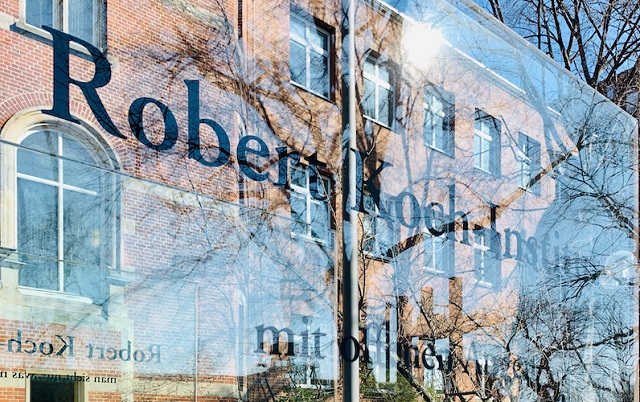
 COVID-191 day ago
COVID-191 day agoLeaked documents: German gov’t lied about shots preventing COVID, knew lockdowns did more harm than good
-

 Business1 day ago
Business1 day agoFederal government seems committed to killing investment in Canada
-

 International1 day ago
International1 day agoSwitzerland’s new portable suicide ‘pod’ set to claim its first life ‘soon’
-

 Business1 day ago
Business1 day agoEstonia’s solution to Canada’s stagnating economic growth
-
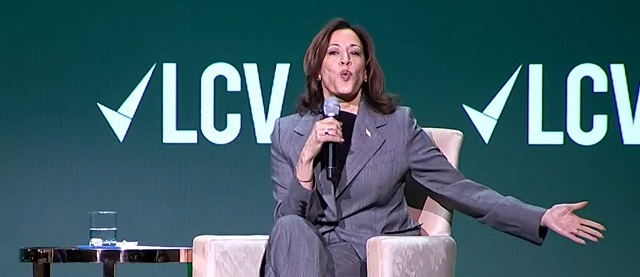
 Economy1 day ago
Economy1 day agoKamala Harris’ Energy Policy Catalog Is Full Of Whoppers




